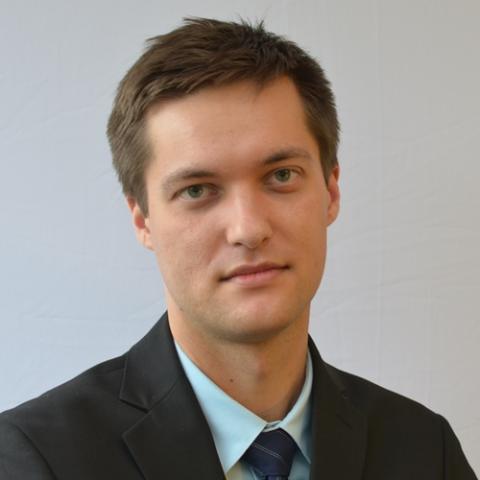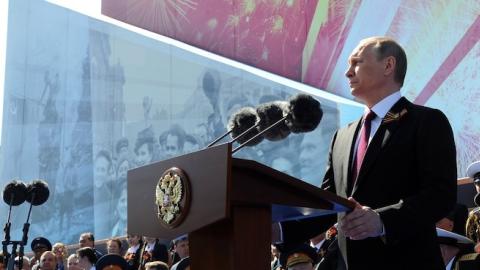Kremlinologists are bouncing around a new idea: That Vladimir Putin’s Russia has not only developed an ideology—one derived from its self-regard as a “Great Power”—but that this ideology is now ascendant over what has previously been understood as the Kremlin’s modus operandi: kleptocracy. That is, those in power are using their positions to enrich themselves through systematic mass-theft, instead of providing security and welfare to the population that elected them in a supposedly democratic and open process.
In fact, the post-Soviet Russian state has never exhibited any coherent national ideas. The only consistent theme we have seen over time has been antagonism and hostility towards the West. This hostility serves to draw the attention (and ire) of the Russian public away from domestic issues—largely caused by predatory looting of the state and private coffers—towards an external enemy.
Those in the Kremlin may be influenced by Great Power thinking, but so far their actions have been motivated purely by personal gain. The reshuffle in the Kremlin, which began with the ousting of Vladimir Yakunin and continues to this day, is more about Putin’s lack of power and security than some grandiose, organized Stalinist putsch for control.
Those at the top have been systematically enriching themselves for years, amassing support and wealth, and solidifying their clans’ powerbase. Essentially, Russia has a network of neo-thieving-boyars, minus the beards, who reside at the pinnacles of power and are engaged in a deep struggle for clout and limited resources.
Putin presides over this court and is growing uneasy with the situation. With the elections approaching in Russia, the powerful clans can easily make a move, especially when Putin, the manager of Kremlin Inc., has caused them serious financial strain under Western sanctions. When a mere Russian senator can purchase one of the most expensive pieces of real estate in London (and the largest after Buckingham Palace), it is clear that the boyars have become accustomed to a certain way of life. Combine this with their clout, immense resources, and the intelligence services background of many “courtlings” Putin helped to engender, and one can see that Russia’s main arbiter of power would be desperately clutching at any chance to keep things from going topsy-turvy in the Kremlin.
Putin isn’t pushing for a neo-Stalinist governance pattern. The simple reason is that the Soviet leader based his rule on power and ideology. Putin doesn’t have an ideology, other than playing the blame game for his government’s failures. He is a scared, isolated leader, who relies solely on short term, stop-gap measures.
Like a well-trained judoka, Putin doesn’t lead: He reacts and exploits others’ weaknesses to his advantage. Right now, he is exploiting the West’s lack of leadership, and it is working well for him. Putin is not so much winning, as we’re allowing ourselves to lose.

















